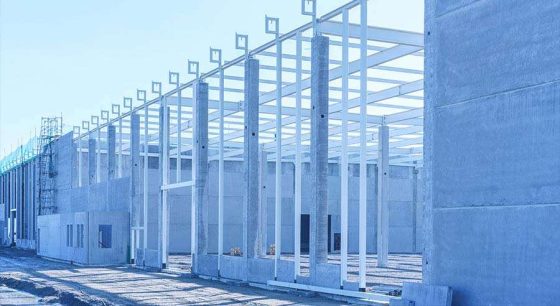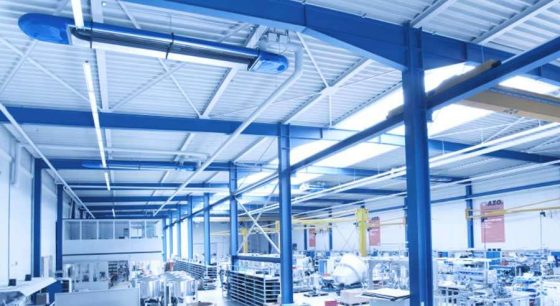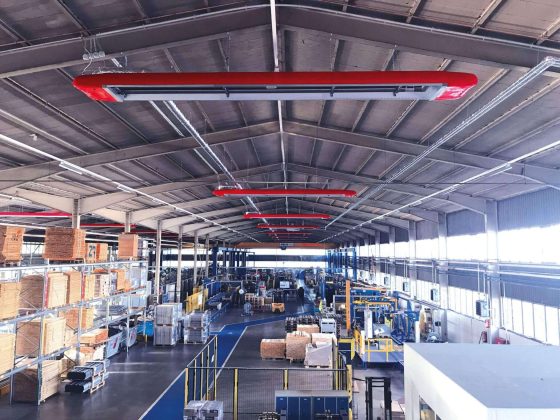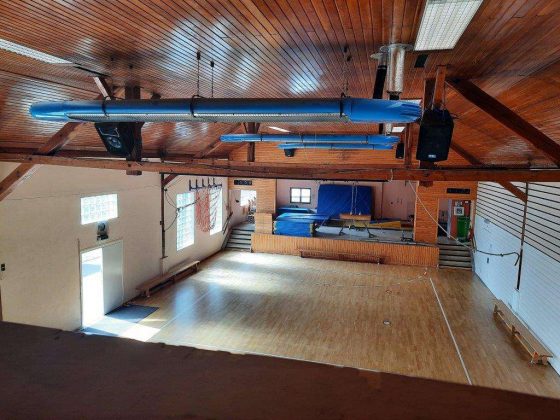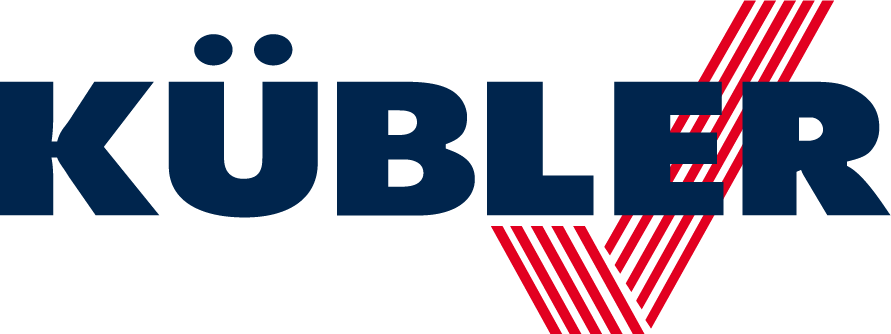Cost factor hall heating - 10 savings tips from the expert
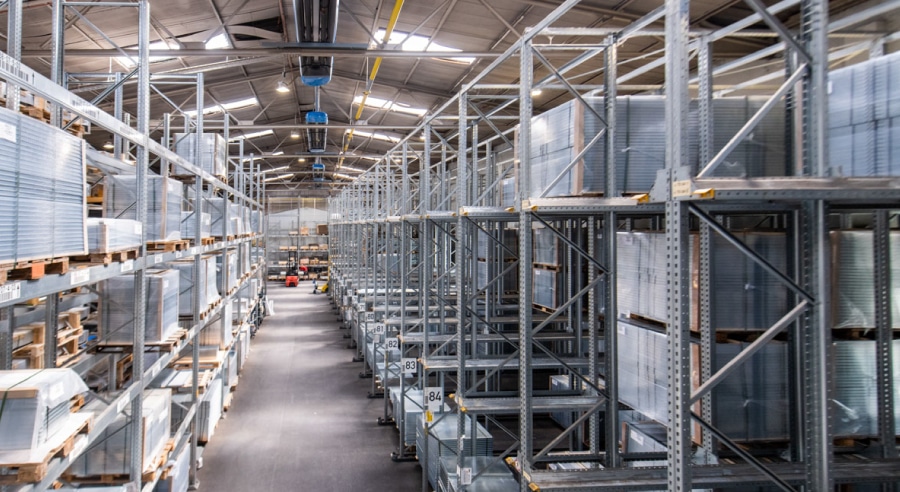
The first piece of good news The fact is: if you have a modern infrared hall heating system in operation, you will save a lot of energy right from the start – regardless of when it was built. Although the latest models – with smart controls – are even more economical and can be operated with renewable energies, so replacing your system can be cost-effective, you are basically on the right track.
The second piece of good news is: Energy consumption can be reduced even further if you make optimal use of the potential offered by your energy-saving hall heating system. As hall heating expert Thomas Kübler says: „The most economical heating system is the one that isn't running.“ Since your infrared heating system works quickly, the temperature in the building can be lowered when no one is working and, if necessary, work areas can be quickly reheated. We would like to give you a few important tips on how to do this:
Tip 1: Reduce the heating times to what is really necessary.
Infrared heaters only require short heating-up times and can be switched on or off as required. You should therefore take advantage of the possibilities offered by modern digital controls. Check the time setting of your control system and adjust it to the actual working times in your hall. Incidentally, if you are not yet using a modern control system, you can retrofit this relatively easily in your existing system.
Tip 2: Check the heating zones for demand-oriented settings.
Not everyone works the same amount of time in every work area. Switch off the zones where the shift ends earlier or where no work is done on certain days.
Tip 3: Reduce the set temperature by 2 to 3 degrees.
In this way, you benefit from the special advantage of infrared heating, which ensures earlier comfort thanks to its heat radiation and the heated surfaces, e.g. the hall floor (bidirectional mode of operation). This means that the same heating quality of 18 °C air temperature of a warm air heater can be achieved at 15 to 16 °C with a highly efficient infrared hall heater. Take advantage of this benefit!
Tip 4: Check your door opening times.
Reduce these to a necessary minimum. Open doors waste a lot of energy unnecessarily. For frequent door openings, use smart software tools such as TorOff, to avoid energy losses.
Tip 5: Check the room frame for open windows and leaks.
A lot of energy can also be lost through open windows or leaking building envelopes. Unpleasant cold bridges are also created. Check your buildings and make small repairs if necessary. In this way, unnecessary energy losses can be avoided.
Tip 6: Clean the reflectors of older heating appliances.
Clean stainless steel reflectors ensure optimum infrared transmission in the working areas. If soiled, part of the heat radiation is lost through diffusion. Up to 10 percent on heavily soiled surfaces! This unnecessary consumption can be saved simply and effectively. Note: with modern top appliances such as OPTIMA plus, MAXIMA, MAXIMA E-Hybrid or the innovative energy-flexible Fair.AIdH*-Hall heating systems, e.g., from the line FUTURA there is no need to clean the reflector due to the design.
Tip 7: Think about replacing your old heating system.
Then please don't make the mistake of reverting to a convective heating system for your hall (i.e., systems that use warm air or warm water). Why? Because this would most likely be a step backwards in terms of heating energy consumption – not to mention the loss of comfort. If you are considering a heat pump, you should know that heat pumps are ideal for producing heat very efficiently at a low temperature level – perfect for most multi-story buildings. In halls with ceiling heights of over 4 meters, this heating principle often does not work satisfactorily. In addition, you lose the option of heating according to actual heat demand, i.e., at the times and in the areas of the hall where heat is actually needed. The system inertia of hydraulic heat pump systems and the heat distribution with additional auxiliary energy requirements are not well suited to the dynamic and volatile requirements of industrial and commercial operations. Starting with open doors and ending with shift operation. If you are considering optimizing your heating system to reduce CO₂ emissions and heating costs due to the age of the system and the overall situation, be sure to seek advice from proven experts in energy-efficient hall heating.
Tip 8: Find out about the new GEG-compliant hall heating technologies.
A wide range of options have been developed to meet the challenges of climate change and specifically reduce energy consumption in halls. These include the option of using our innovative E-HYBRID or multi-energy systems (Fair.AIdH*technologies) to use renewable energies very economically. The latest cutting-edge technologies are capable of absorbing different forms of energy and thus transporting you into the carbon-free era in terms of heating technology. These technologies are very economical because the investment remains affordable and because consumption can be significantly reduced once again thanks to the many newly developed functions. In energy management and controlling, you can count on the optimization of your heating system with the right technology paying off for you. And for the environment.
Tip 9: Use the possibilities of AI-supported, digital control systems.
An important factor for low-consumption heating operation is the operation of the system. Modern modular control systems such as CELESTRA or MAXTRA offer a wide range of AI-supported options for automatically running your hall heating system on the ideal line and using virtually every opportunity to save energy. Automatic switch-off when the hall doors are open, building storage, connection to the electricity exchange or integration of weather data are examples of this. The integration of an energy management system such as EMMA, which was specially developed for hall heating systems and is BAFA-listed, also ensures complete transparency of system operation through real-time analysis of each individual heating device, rapid fault detection and also provides the necessary documentation for your quality management, for example in accordance with DIN 50001. By the way, you can find a quick and easy-to-understand source of information in just a few minutes with this Explanatory video.
Tip 10: Seek advice from proven experts!
Heating halls reliably, comfortably and at the same time cost-effectively and in a climate-friendly way is anything but trivial. This is because they place completely different demands on heating technology than residential or office buildings. Make sure you contact experienced experts who are familiar with this special category of building. The hall heating specialist KÜBLER provides a lot of valuable information on www.kuebler-hallenheizungen.de available.
And last but not least the third piece of good news: If you consistently follow the above recommendations, you will realize valuable savings potential for your company with relatively little effort, make a relevant contribution to climate protection, comply with legal requirements, and benefit from a particularly pleasant thermal working environment in your hall building.
-
Are you looking for an economical and sustainable heating system for your new building? Then you should invest enough time in planning. And avoid the following mistakes.
-
Heating industrial and event halls economically and flexibly: radiant heaters are ideally suited for this job. An overview of how they work, types and possible applications.
-
The search for suitable optimization potential in energy-related processes in industrial and commercial companies is not always easy for energy management. Especially as measures in efficiency technologies and renewable energies cost money and the budget is often lacking. Many - ecologically and economically important - measures then fall by the wayside. But does that have to be the case?
-
Turnverein 1860 Mußbach e.V. is a traditional sports club with a long history. Since it was founded in 1860, it has got a large number of people of all ages and backgrounds moving and now has over 1,200 members. The club offers a wide range of sporting activities. Dieter Hackebeil, former chairman of the club and now (un)retired, was the main person responsible for the renewal of the heating system at the time and can "only praise KÜBLER to the skies." Satisfaction and conviction are the key words here.
